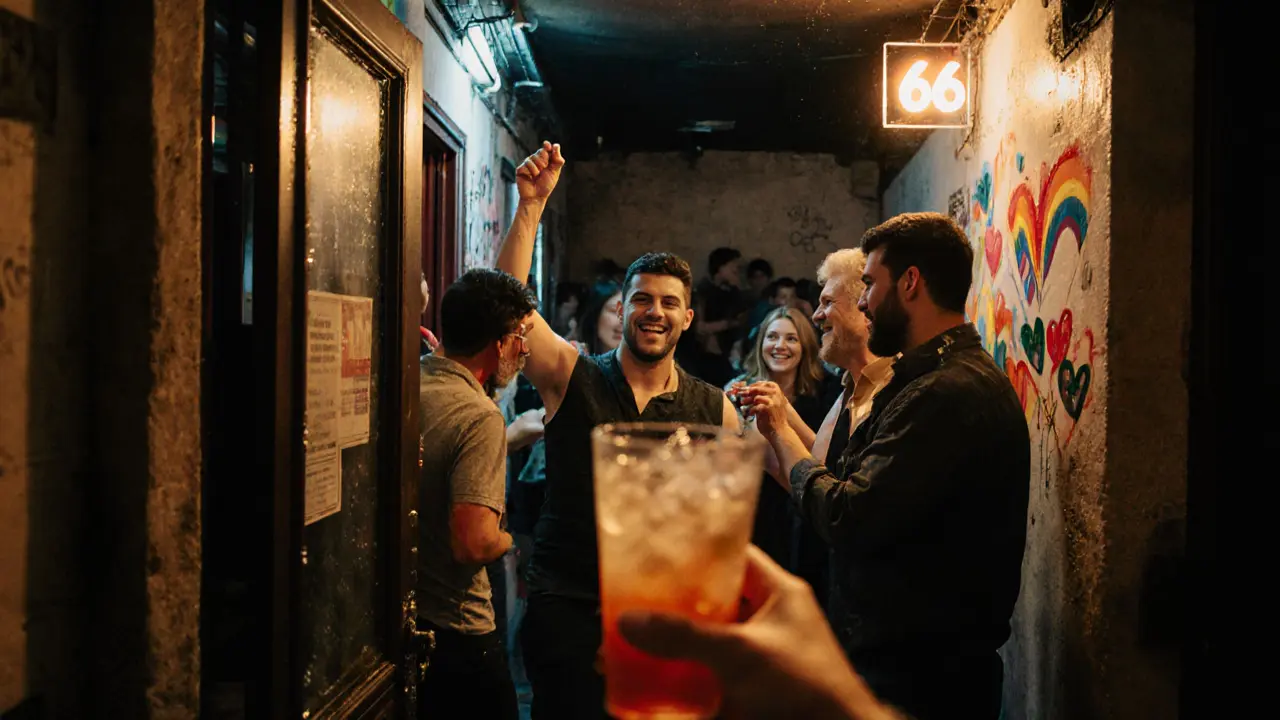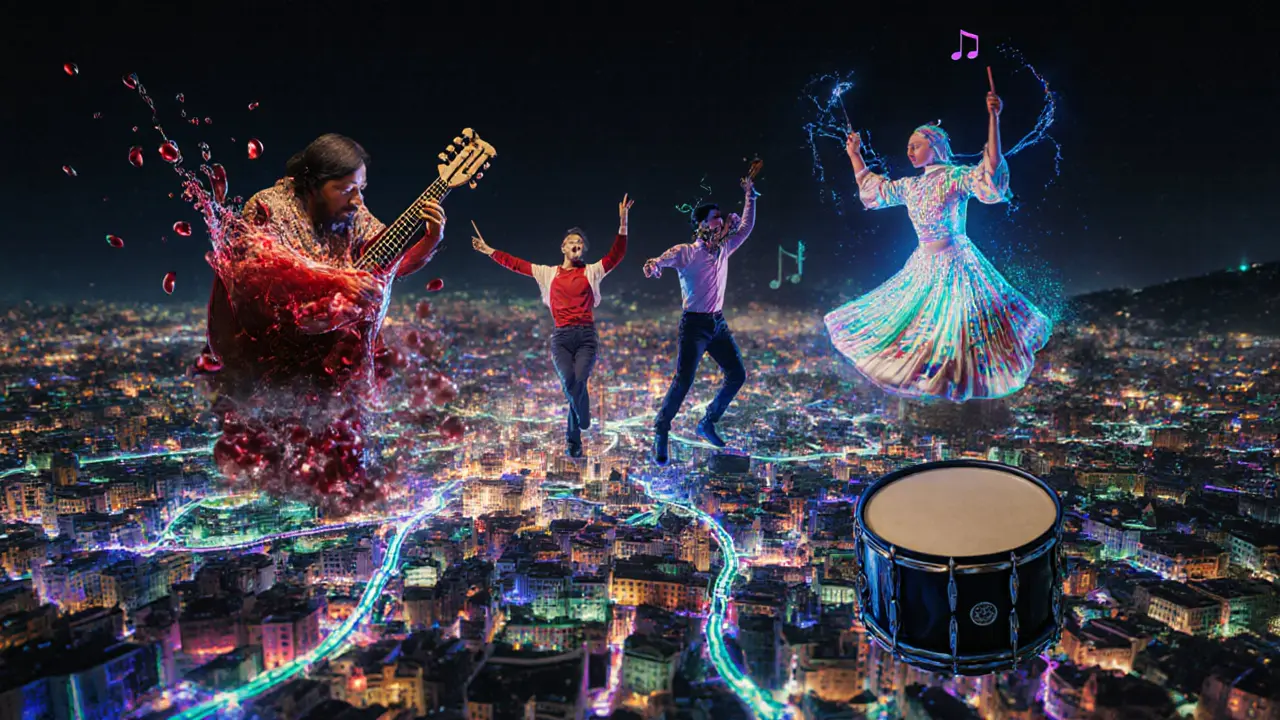When the sun sets over the Bosphorus, Istanbul doesn’t just light up-it explodes. From rooftop lounges with panoramic views to underground clubs where bass shakes the walls, the city’s nightlife isn’t just about partying. It’s about belonging. In a place where East meets West, tradition clashes with rebellion, and centuries of history breathe through every alley, Istanbul’s night scene has become one of the most diverse and inclusive in the world.
Where Tradition Meets Transgression
You can sip raki on a terrace overlooking the Golden Horn, then walk ten minutes and find yourself in a club where drag queens perform to Turkish pop remixes while a mixed crowd of locals, expats, tourists, and refugees dance without a care. This isn’t a coincidence. Istanbul’s nightlife thrives because it refuses to be boxed in.Historically, the city has always been a crossroads. Ottoman-era coffeehouses hosted poets and philosophers. In the 1980s and 90s, underground music scenes gave rise to Turkish rock and electronic beats. Today, those roots still grow. Places like Reina and Karaköy Lokantası draw crowds that include grandmothers in headscarves and young queer artists in glitter. No one asks questions. The vibe is simple: if you’re respectful, you’re welcome.
The LGBTQ+ Heartbeat of the City
Istanbul may not have legal protections for LGBTQ+ people, but its nightlife tells a different story. In neighborhoods like Beyoğlu, İstiklal Avenue comes alive after dark-not just with tourists, but with a vibrant queer community that’s been building its own spaces for decades.Bar 66, tucked away on a quiet side street, has been a safe haven since the early 2000s. It’s not flashy. No neon signs. Just good music, cheap drinks, and people who’ve been through it all. On Friday nights, it’s packed with transgender performers, gay couples holding hands, and straight friends who just love the energy. There’s no gatekeeping. No bouncers checking IDs for gender. Just a room full of people who know what it means to be seen.
Outside of Beyoğlu, places like Club K and Bar 22 host themed nights-drag bingo, queer karaoke, trans-only dance floors-where identity isn’t a topic of conversation, it’s the whole point. These aren’t tourist traps. They’re community spaces built by locals, for locals.
Music That Knows No Borders
The sound of Istanbul’s night isn’t one genre. It’s a mix of oud melodies, techno beats, hip-hop in Turkish, and jazz played in basements with no air conditioning. You’ll hear Arabesque remixed with dubstep at Maya, traditional Sufi rhythms layered over house music at Leb-i Derya, and live Kurdish folk bands playing to a crowd of 30-year-old bankers and 18-year-old refugees at İstanbul Modern’s rooftop.Why does this work? Because music here isn’t about labels. It’s about feeling. A Syrian refugee might be dancing next to a German artist who moved here for the art scene, and a Turkish student who just came out to her family. They all move to the same rhythm. The city doesn’t care where you’re from. It only cares if you’re moving.

Bars That Don’t Judge
Walk into Bar 1907 in Cihangir and you’ll find a mix of elderly Turkish men sipping tea and young non-binary artists sketching on napkins. The bartender doesn’t ask if you’re “a boy or a girl.” He just asks, “What’s your name?”That’s the pattern. In Istanbul’s best nightlife spots, you’re not defined by your gender, religion, nationality, or income. You’re defined by your energy. Leb-i Derya has a no-dress-code policy. Bar 66 lets you pay what you can. Wing, a vegan bar in Karaköy, hosts poetry readings for refugees and queer youth every Wednesday. These aren’t marketing gimmicks. They’re daily practices.
Even in places that look like typical tourist clubs-like Reina or Karaköy Bar-you’ll notice something different. The staff is trained to handle diverse crowds. Security doesn’t single out people based on how they dress. There’s no “VIP only” section that excludes locals. The money flows, sure-but so does humanity.
Why It Works When Other Cities Struggle
Many cities claim to be inclusive. But in Istanbul, it’s not performative. It’s survival.The city has lived through coups, economic crashes, religious crackdowns, and political purges. In times like these, nightlife becomes a refuge. A place where you can be whoever you need to be, even if the world outside won’t let you. So people protect it fiercely. If a club gets shut down, the community rallies. Petitions go up. Artists organize benefit shows. New spaces open within weeks.
This isn’t just tolerance. It’s solidarity. And it’s why Istanbul’s nightlife keeps evolving-even when the government tries to control it. In 2023, the city banned late-night alcohol sales in certain districts. The response? People started hosting rooftop parties. Underground clubs popped up in abandoned warehouses. The scene didn’t die. It got smarter.

What You’ll Experience If You Go
If you’re planning a night out in Istanbul, here’s what to expect:- Start early. Many places don’t get busy until midnight.
- Bring cash. Many small clubs don’t take cards.
- Wear what makes you comfortable. No one will stare.
- Try the local drinks: raki with meze, Turkish coffee with a shot of arak, or a fresh pomegranate juice at 3 a.m.
- Don’t assume you know the crowd. The person next to you might be a retired professor, a Syrian refugee, or a drag queen from Ankara.
And if you’re feeling nervous? Go with a local. Many Airbnb hosts in Istanbul offer free night-out guides. They’ll take you to places you’d never find on Google Maps.
It’s Not Perfect-But It’s Real
Istanbul’s nightlife isn’t without problems. There are still unsafe areas. Some clubs have shady owners. Police occasionally raid parties. But the difference is this: the people who live here don’t wait for permission to celebrate. They build their own rules.That’s why, year after year, travelers from Berlin to Bangkok come here-not just for the clubs, but for the feeling. The feeling that, for a few hours, you’re not an outsider. You’re part of something alive, messy, beautiful, and fiercely human.
When you leave Istanbul at dawn, you won’t remember the name of the club. You’ll remember the stranger who bought you a drink because you looked tired. The group of women who danced with you even though you didn’t know the song. The way the call to prayer faded into a bassline, and for a moment, everything made sense.
Is Istanbul nightlife safe for LGBTQ+ travelers?
Yes, in the right areas. Neighborhoods like Beyoğlu, Karaköy, and Cihangir are known for being welcoming. Clubs like Bar 66, Club K, and Bar 22 have long histories of supporting queer communities. While public displays of affection might draw stares in some parts of the city, nightlife venues are generally safe and respectful. Avoid areas near conservative neighborhoods like Fatih or Üsküdar after dark unless you’re with a local guide.
What’s the best night to experience Istanbul’s diverse nightlife?
Friday and Saturday nights are the busiest, but Wednesday and Thursday nights often feel more authentic. That’s when locals dominate the scene and themed events-like queer karaoke at Bar 22 or Sufi jazz nights at Leb-i Derya-happen. Weekends are fun, but weekdays give you space to really connect with the culture.
Do I need to speak Turkish to enjoy Istanbul’s nightlife?
No. English is widely spoken in popular nightlife districts, especially among staff and younger locals. Many venues have English menus and playlists. But learning a few phrases like “Teşekkür ederim” (Thank you) or “Ne var?” (What’s up?) goes a long way. People appreciate the effort-and it often leads to better recommendations.
Are there any dress codes in Istanbul clubs?
Most clubs don’t enforce dress codes. You’ll see everything from jeans and sneakers to high heels and glitter. Some upscale venues like Reina or Maya might prefer smart casual, but even then, no one turns you away for wearing shorts or a t-shirt. The only rule: no beachwear or flip-flops in formal lounges. Otherwise, wear what makes you feel confident.
How late do Istanbul clubs stay open?
Many clubs stay open until 5 a.m., and some, especially in Beyoğlu and Karaköy, go past 6 a.m. on weekends. However, alcohol sales are legally restricted after 1 a.m. in certain districts, so you’ll often see people drinking coffee or juice after that. The party doesn’t stop-it just changes form. Breakfast clubs with live music start around 4 a.m. in places like Cihangir.
